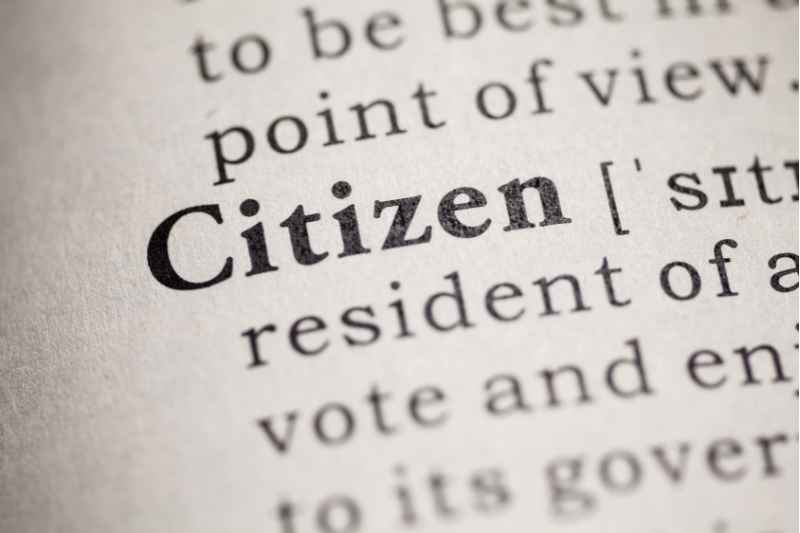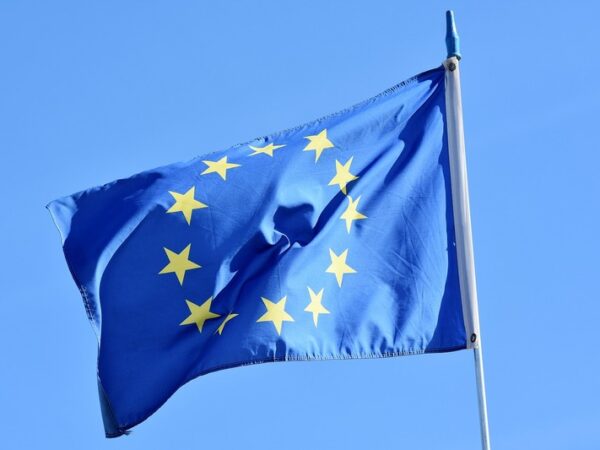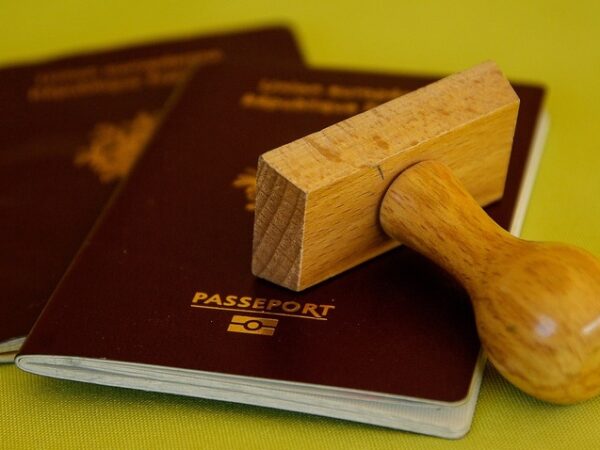Becoming a Citizen of the European Union
Holding a passport from any of the 27 European Union member countries can be enormously advantageous. An EU passport is readily accepted in most countries and many of these visa-free grant travel for European Union citizens. One of the biggest advantages of being an EU citizen is the freedom it affords. EU citizens can travel freely between any of the member states with just a valid passport. Not only are EU citizens free to roam through the European Union on holiday, but they can also stay in a member state indefinitely. This could be to study, work or even take up residence.
These are all good reasons why people from so many nations seek to acquire EU citizenship and the all-important passport that comes with it. However, acquiring a European Union passport is difficult unless born in a member state. Although it’s a complicated process, it’s not impossible!
Three Routes to EU Citizenship
A person born in a European Union member state is an EU citizen and automatically entitled to a passport from the EU country of birth. But it is not just European-born citizens who are entitled to a European passport, as this right also applies to certain close family members. This is called citizenship by descent, and the rules and regulations regarding this form of acquired citizenship vary from country to country.
There are three routes open to acquiring EU citizenship:
- Descent
- Naturalisation
- Investment
Probably the simplest route to EU citizenship is by descent, whereby a person may qualify due to a close relationship with a native-born EU citizen.
The second route is via naturalisation, which will entail living and working in a European Union country for a specified amount of time. The precise terms for this form of acquired citizenship can vary greatly between EU countries.
Finally, some EU countries allow non-nationals to become citizens through investment. This can be an expensive undertaking, and many EU countries no longer operate a citizenship-by-investment scheme, and the number is getting smaller every year.
Citizenship By Descent
All 27 EU member states allow citizenship by descent, sometimes referred to as citizenship by ancestry. Under this system, it is possible for the sons and daughters (in some cases grandchildren)of an existing EU citizen to also become an EU citizen. This is an automatic process for the offspring of a person born in an EU country as long as the parent has not forfeited his or her nationality.
It also applies to persons born outside the European Union but whose parents are EU citizens. In such cases, the person would have dual nationality: the country of birth and that of the parent’s nationality. Qualification is usually confined to three generations in most EU countries, but some countries also allow for qualification even through great-grandparents. These countries are:
- Bulgaria
- Poland
- Hungary
- Greece
- Republic of Ireland
- Italy
- Slovakia
- Luxembourg
- Lithuania
Every EU country has different regulations as to how many generations of a family may be considered eligible for citizenship, and these rules are always subject to change. Applying for citizenship through descent can be a lengthy and convoluted process. It will involve filling out a detailed form and the collection of supporting documentation which must be submitted to the relevant EU country’s embassy.
Some of the documentation required includes:
- Previous passports held
- Birth certificate
- Marriage and/or death certificates, if requested
- Documents pertaining to the relationship
- Statement of status (national, resident, refugee etc.)
There can be many more documents required, and this will depend on the circumstances of each applicant. The German application form, for example, covers a multitude of possibilities regarding the history of an applicant’s line of descent. These include unwed parents, parents who married after the birth of the applicant, whether one or both parents are German nationals and various other combinations.
Despite the paperwork involved, citizenship by ancestry is still regarded as the simplest route to becoming an EU citizen. However, it is a slow process, often taking a year or more to process, and there are fees attached. Securing copies of the necessary documents will come at a price, and the application processing fees are not exactly cheap. Prices will vary but can be as high as €1,000 (£878), and there will also be possible legal fees to be considered.
Citizenship By Naturalisation
The second most common route to acquiring EU citizenship is through naturalisation. There are two ways of doing this:
- Through Employment
- Through Marriage
Following either of these paths will lead to becoming a citizen of the country in question but there are a number of qualifying conditions attached to each.
Employment
Any non-European can apply for employment in any of the EU member states. A Schengen Visa does not permit the holder to seek work while in the Schengen Area, so a work visa will be required. Most commonly referred to as the EU Blue Card, this is granted to workers with a high level of education, certain desired skills or level of experience.
Acquiring a Blue Card is based on a points system; applicants must attain a set number of points to be accepted into the scheme. Even with enough points, prospective workers will likely require a confirmed offer of employment and the sponsorship of the new employer.
In most cases, an application for citizenship may be made after five years of continuous employment in the country, although this can be as high as ten years in some EU member states.
Marriage
Marrying a national of any EU country entitles the spouse to apply for citizenship of their partner’s country of birth. While this may seem an easy route to EU citizenship, it is not as straightforward as it appears. As a general rule, and in order to prevent marriages of convenience, the newlyweds must remain married for a minimum of three years before any application for naturalisation will be considered.
Marriages between EU and non-EU citizens have been used fraudulently to acquire citizenship, and many countries have now attempted to close this loophole. Such couples must now show they have been cohabiting for three to five years and not living apart. If this cannot be adequately proven, or If the country’s officials prove such deception, the marriage may be annulled, and the non-national may be subject to fines and even deportation.
Even when all qualifying conditions for applying to become a naturalised citizen have been met, there may be further hurdles to overcome. Most countries will require potential new citizens to show a willingness to assimilate into the country’s beliefs, principles and way of life. Most countries demand that an applicant for citizenship has an understanding of the country’s laws and traditions as well as a basic proficiency in the spoken and written language of the country in question.
Citizenship By Investment
In times past, many European Union countries operated a “Golden Visa” or “Golden Passport” system. These schemes were designed to attract wealthy non-Europeans to a country where, for a substantial investment, they could, in effect, purchase citizenship.
However, the systems were controversial, and there have been numerous cases of known criminals, or persons suspected of connections to terrorism, simply using their ill-gotten wealth to begin a new life in the European country of choice.
Many EU countries no longer offer citizenship by investment, and only four current European Union member states still operate these systems.
The four countries where it is still possible to “purchase” citizenship are:
- Spain: Spain requires investors to purchase real estate with a minimum value of €500,000 (£440,000) and will not consider applications for citizenship until ten years have elapsed. However, the investor is allowed to leave and enter the country at will.
- Portugal: Portugal has the same investment requirements as Spain, but the investor must be resident in the country for a period of five years before citizenship can be considered.
- Malta: Malta offers the chance to become a citizen after only three years, but there is a higher qualifying investment of €700,000 (£620,000) in real estate or Maltese government-approved institutions.
- Greece: Greece has the lowest threshold of investment at €250,000 (£220,000), but candidates for citizenship must be residents in the country for seven years or more.
- Germany: Although Germany does not officially operate a Golden Passport system, it is still possible to acquire citizenship. This can be done by starting a business in Germany that is economically viable and provides employment for German nationals.
As can be seen, becoming an EU citizen through investment requires substantial funding and is limited to those that can afford a large outlay of money.
Freedom of Movement
There are a range of advantages to having EU citizenship, but probably the biggest is the freedom of movement that a passport from a European Union country affords the holder. Not only does a European passport permit the holder to travel freely in Europe without the need for a Schengen Visa, but it is also readily accepted in most of the world’s major destinations. The new ETIAS (European Travel Information and Authorisation System) will soon be in place, and non-Europeans will need to have this pre-travel approval before arriving in the European Union or Schengen Area. The ETIAS requirement will not apply to European passports as EU citizens will continue to enjoy freedom of movement across Europe and visa-free access to many parts of the world.




